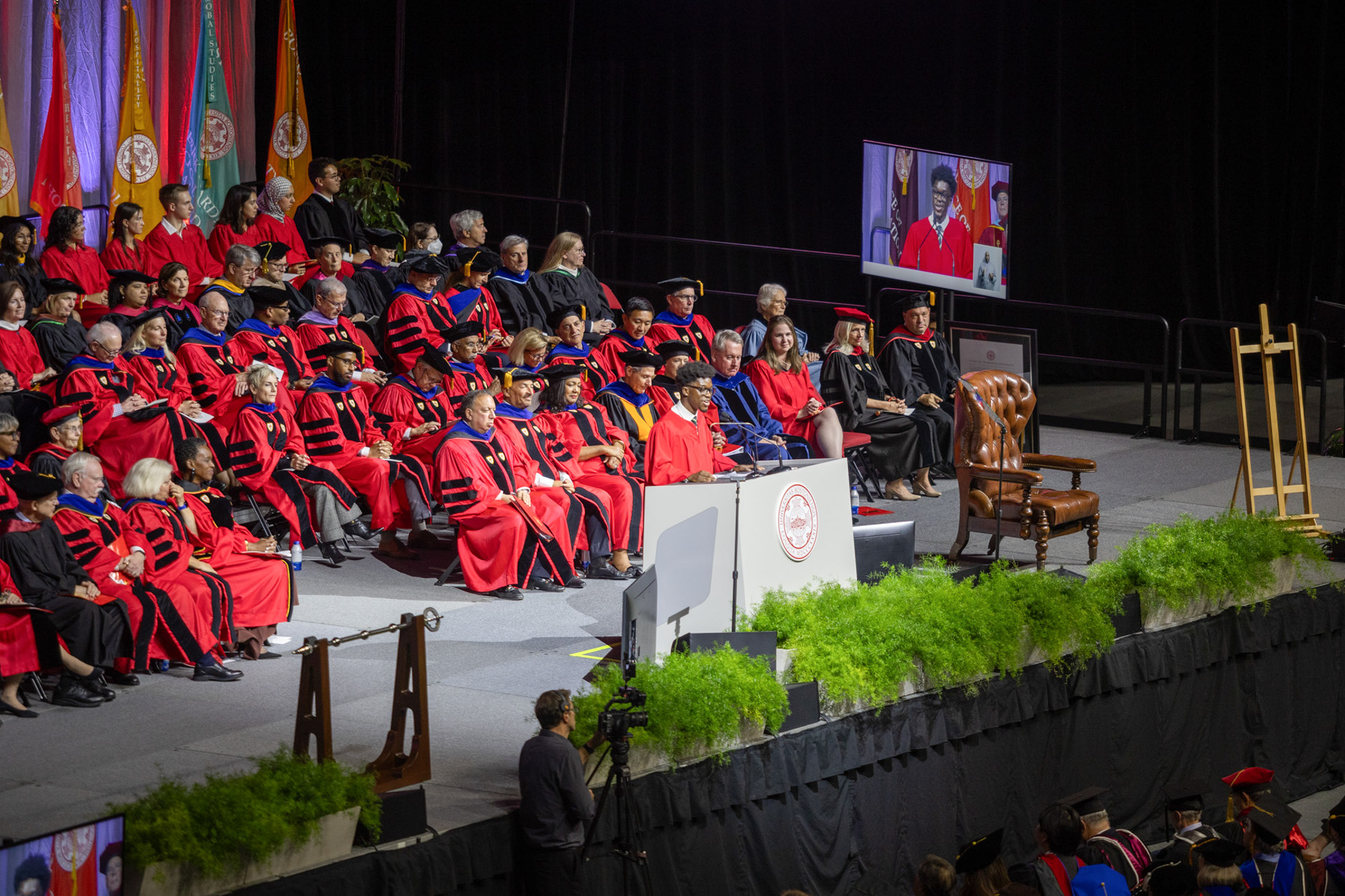Boston University student organizations have increasingly requested funding from Student Government after the Allocations Board altered its guidelines for funding requests.

Each year, organizations including BU clubs, the AB, StuGov and athletics, negotiate for a portion of the Community Service Fee to gain their funding for the year, said Student Body President Akwasi Antwi. The money for the CSF comes from a portion of money paid by each BU student.
This year, the Allocations Board which is overseen by the Student Activities Office changed its guidelines for student groups requesting funding.
Margaret Babson, interim director of SAO, said there is usually a “50% difference” in the amount of money requested by student groups and the amount AB can provide.
Babson said she helps advise the AB, which is overseen by a graduate assistant and made up of an “undergraduate student board.”
One of the new changes is a mandatory training with AB that groups must complete as a “prerequisite” for funding. Groups also need to show documentation of the requested costs, Babson said.
“Usually when [AB is] looking at requests, it’s mostly about making sure everything is in line with guidelines,” Babson said. “If it is in line with guidelines, and they’re able to, then they’ll fund those different events and programs.”
Antwi said StuGov has seen “increased activity” on the Senate’s general ledger as a result of the SAO guideline changes.
Antwi said StuGov typically has a budget of about $300,000 each school year which is spread out across all its accounts. On-campus groups request funding specifically from the legislative branch of StuGov.
StuGov usually receives “a lot” of funding requests from new organizations that didn’t have time to apply for AB or SAO funds, Antwi said. He said some groups received no funds from AB, while others approached StuGov on an “as-needed basis” to fund specific initiatives.
“What we’ve seen this year is that a bunch of organizations, not necessarily new organizations, are facing a lot of funding shortfalls,” Antwi said.
Although StuGov is able to meet a majority of requests, Antwi said StuGov’s remaining funding is lower than usual for this point in the year. Costs requested at its weekly meetings have occasionally needed to be lowered before approval or re-presented the following week.
“We’ve never seen anything like this, in terms of the amount of money that is coming out of the Student Government ledger,” Antwi said.
Antwi said the process to receive funds is “complex” and “inaccessible.” He said he would like AB to be “more visible and more accountable to students.”
“To be able to get representatives of AB and be able to have a conversation with them and really reach out to them on behalf of a club is extremely difficult,” Antwi said. “They’re not student-facing at all, and I think that needs to change.”
The Society of Hispanic Professional Engineers was affected by AB’s shifts in guidelines when AB denied its funding request for the national convention SHPE members attend each year.
The request was denied because SHPE’s had sufficient account balance to cover the requested funds, said senior Adrian Reyes, the club’s president.
Reyes then turned to StuGov for funding where he received approval for the group’s funding request. He said finding funding at BU is “good if you know how to navigate it.”
“I know quite a few other clubs that are starting out, or just a little bit smaller, that are lacking in those resources and just that knowledge,” Reyes said. “Generally, everyone just kind of thinks AB is the only way [to get funds].”
Babson said alternative funding methods for student groups include StuGov, college student governments, BUild Lab, Spark!, grants, individual department and office funds, alumni donations and crowdfunding.
Another group struggling to receive funding is Verge, a dance group specializing in classical Chinese choreography. Co-President Heather Li said the group did not receive any funding from SAO this year.
Due to the lack of funding, meal cost coverage for the group’s bonding events was cut this year, and members have to pay for their small group dance costumes if they are returning the costumes back to Verge, both costs covered by AB in the past.
Verge attempted to gain funding from StuGov earlier this semester but instead, requests were tabled, then denied.
Without funding, Li said Verge may not be able to purchase costumes that accurately represent the different ethnic groups in China for their dances.
Verge has now begun fundraising for the event and seeking funding from Innovate@BU.
“Our club is growing, and we do not have the funds this year to provide for that growth,” Li said. “It really shows how restrictive things can get if you don’t have the funds to do anything for your club.”



















































































































Michael Scarn • Nov 15, 2024 at 5:01 pm
I know Club Sport teams pay thousands of dollars out of pocket each year in dues. Do these other groups not pay out of pocket at all for anything they do?